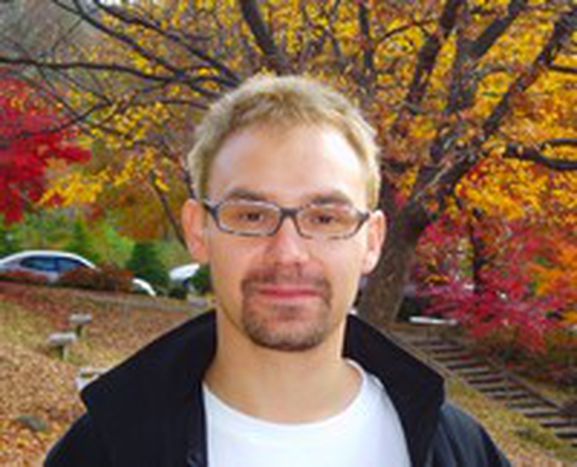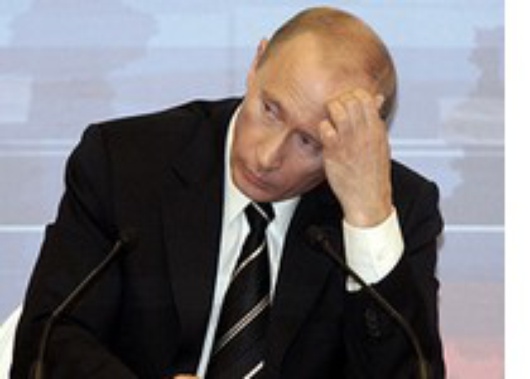
Putin, prime minister in 2008?
Published on
Translation by:
Nicholas DobsonOn 26 October, the EU-Russia summit in Mafra, Portugal could reveal the Tsar's energy policy or Kremlin successor ambitions. Poet and art critic Dmitry Golinko provides a Russian reaction
On 1 October, Vladimir Putin announced that it was 'entirely realistic' that he could stay in power as prime minister after his second presidential term ends in March 2008. How have Russians reacted?
Since 2004, there has been great debate in the Russian media about who Putin's successor will be. The most widespread view for the Russian consciousness is that the 'Year 2008' will represent a rupture from the last two decades, dominated by a capitalist economy in the country. In other words, the future of the country cannot be predicted beyond 2008, which is considered a point of no return. The consequence of this: mass hysteria.
'In the hope of calming the situation,' Putin's team have put forward the names of two candidates, Dmitry Medvedev and Sergey Ivanov, each with an equal chance of succeeding the former head of the secret police. However, Putin's announcement, which calls to mind Boris Yeltsin's strategy of presenting a new prime minister every three months, has simply made the situation worse. This parallel suggests that the political scene could have many more faces revealed before 2008.
Could Putin really be prime minister, after having been president, and carry out his successor's orders properly?
The answer is unclear. Firstly because Putin is a charismatic leader and his successor should be his exact duplicate, applying his policies and carrying out his every whim. Such a person no longer exists. Putin is a typical example of globalisation: he adheres to a neo-liberal economy. He displays pragmatism but puts a conservative, bureaucratic system into place. The Russian petrol economy for example could be described as 'the best of the worst.' The only real opponent of Putin could only be a new 'Savonarola' (Girolamo Savonarola, 15th century religious reformist – ND), who is neither proletarian nor bourgeois, will declare 'a state of emergency' and give emphasis back to ideas.
Can we hope for an improvement in relations between the EU and Russia?
There are currently two main forces at work in Russian foreign policy. On one hand, there is a desire to integrate with Europe, as the greater part of Russian citizens seem closer to the western model, founded on the values and humanism of the enlightenment, rather than the Asian, capitalist model. On the other hand, some wish to maintain the country as a geopolitical entity, complete in of itself and isolated, claiming the title of 'global superpower', despite the fact that with the fall of the Soviet Union in 1991, the country lost its status as an invincible empire. These two desires are in constant conflict. Russian policy throughout its history has always been somewhere in-between the two.
You are a writer and art critic. How would you describe the situation Russian writers find themselves in?
The situation of Russian literature and contemporary art is full of complicated contradictions. The cultural sector suffers directly from the current institutional crisis. The institutions which are remnants of the Soviet era are obsolete and the others, created in the post-Soviet period, are completely corrupt and inert. This lack of active and efficient institutions cannot be solved without the help of state finances.
Artists receive no support from either the state or private foundations, which is why they turn towards international patrons. Another issue is the aesthetic censoring that happens even now to a certain degree. The cultural bureaucracy states that a work must be as beautiful and upbeat as possible. Contemporary Russian art must cater to the tastes of the emerging middle class, showing wealth and well-being. Art is reduced to being little more than charming and captivating decor for the bourgeois way of life. This demand leads to the simplification of Russian cultural values and art itself becomes nothing more than a sort of Disneyland, catering to the taste of rich consumers.
Tense EU-Russia relations
 After the breakdown of the previous summit in Samara in April 2007, relations between Russia and the EU are not in good shape. The order of the day has changed, different interests and a fully-booked political agenda on the Russian side leaves little to hope for from this meeting. After Samara, hardly any progress has been made in negotiations between their two economic and social partners.
After the breakdown of the previous summit in Samara in April 2007, relations between Russia and the EU are not in good shape. The order of the day has changed, different interests and a fully-booked political agenda on the Russian side leaves little to hope for from this meeting. After Samara, hardly any progress has been made in negotiations between their two economic and social partners.
The question of Kosovo, the redefinition of the current economic partnership with the EU, the Russian embargo on Polish meat and the zone of influence maintained most notably over the Baltic countries are just a few of the prickly subjects poisoning diplomatic and economic relations between the two global powers. The change in leadership of the European powers does not help relations either. Since May, discussions on these matters have gone nowhere, Russia has no interest in making any concessions. Even five months later, it is as if the negotiations are back to square one.
Photos: homepage (DWinton/ Flickr), in-box (opendemocracy/ Flickr)
Translated from Poutine, Premier ministre en 2008 ?



